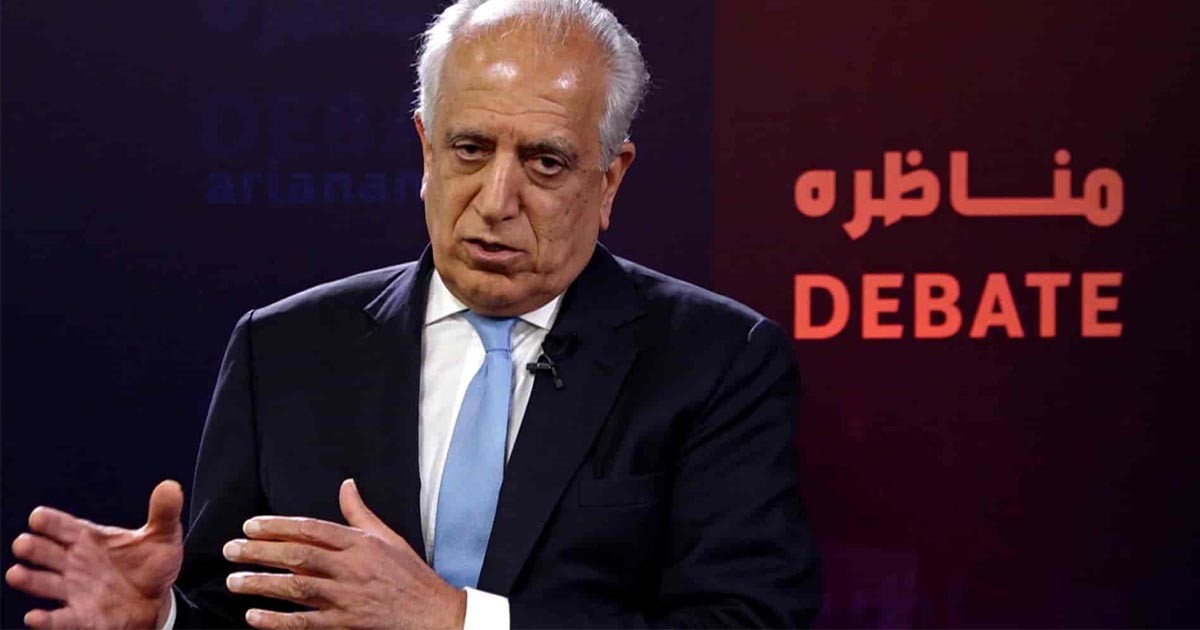News Analysis |
United States of America has maintained that the purpose of ongoing negotiations with the Taliban is to find a sustainable way for peace to prevail in the country and not entirely withdraw the U.S troops. “This is a framework which the Taliban accepts, as we prepare for the next round of talks with the Taliban, important to remember we seek a comprehensive peace agreement, NOT a withdrawal agreement,” Afghan-born U.S diplomat and special envoy for peace process, Zalmay Khalilzad, said in a tweet. But contrary to it, the Taliban spokesperson for the Qatari office, Sohail Shaheen, tweeted that the United States has agreed to withdraw its troops from Afghanistan and not meddle in its affairs, but he did not give any specific timeframe.
In the countryside of the provincial capital Lashkar Gah, both Taliban and Afghan army’s check posts are at walking distance to each other.
The formal negotiation process is about to enter almost its second year between the Taliban and the United States but so far there has been no substantial breakthrough other than the assurance given by the Taliban that Afghanistan’s territory will not be allowed to be used against the U.S. The Taliban have categorically denied giving any legitimacy to the Kabul government despite U.S’ constant insistence. There seems to be deadlock about the post-withdrawal political environment of Afghanistan.
Read more: Ghani optimistic of Taliban Peace deal
Taliban keeping up the momentum in fighting
Afghan National Army is the primary rebuttal force facing the marching Taliban as the U.S troops in Afghanistan remain limited in number as compared to more than 100 thousand strong during the peak of fighting 10 years back. They hardly take part in combat anymore and therefore have restricted themselves to an advisory and training role.
Due to lack of adequate training and equipment coupled with rampant corruption within the Afghan Army, Taliban have been able to obliterate the posts of government forces and keep gaining the momentum.
USA has maintained that the purpose of ongoing negotiations with the Taliban is to find a sustainable way for peace to prevail in the country.
Helmand, which has been the death ground of more U.S, international and Afghan troops than any other Afghan province, has also put up more resistance but the locals now fear that in case of a U.S withdrawal, the province is likely to fall to insurgents once again.
In the countryside of the provincial capital Lashkar Gah, both Taliban and Afghan army’s check posts are at walking distance to each other. It has now been established and repeated in the international media repeatedly that the Taliban contest more than 80% of the Taliban and not even Kabul is safe from attacks.
Read more: Afghanistan sends team to join Taliban peace talks in UAE
Change of Strategy
United States top military brass in Afghanistan has convinced Afghan Generals that the strategy of holding Taliban back is not working at all therefore instead of letting the soldiers at outposts be nothing more than sitting ducks, the checkpoints should be closed. General Scott Miller, who leads Nato’s Afghanistan mission and the US war effort in the country, has said that the closure of checkpoints is crucial for the Afghan military. “They don’t lose people in (offensive) operations, they kill Taliban,” Miller told US military officials at a recent meeting. “You want to hear my (tactical) priorities? Talk about checkpoints.”
The U.S has urgency, the Taliban has not
Of course, Taliban must be weary of the 3-decade long fighting but they are not on the clock, unlike the United States. Taliban can keep the war going, which is unilaterally in their favor, but it is the U.S administration which wants to put an end to its campaign. No matter what the U.S negotiator tells the world, the deadlock is only going to break if the United States abides by the Taliban’s way of negotiations and demands. With every passing day, Taliban are winning more territory and the pressure is reverted to the Afghan and U.S governments.














